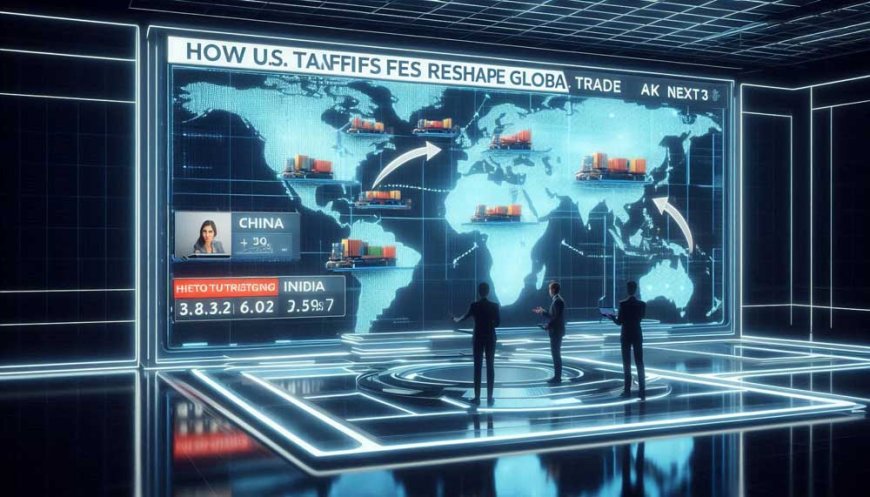How are current U.S. tariffs and trade policies impacting global supply chains?
This episode of ASK Nexth explores the ripple effects of U.S. tariffs and shifting trade policies on global supply chains. Featuring expert insights, the discussion covers cost increases, reshoring trends, legal rulings, and the strategic pivot toward friend-shoring. How U.S. tariffs are reshaping global supply chains—costs, legal risks, and shifts to Vietnam, India & Mexico explained by industry experts.

Current U.S. tariffs and trade policies are significantly reshaping global supply chains, leading to increased costs, operational disruptions, and strategic realignments.
Rising Costs and Operational Strains
The imposition of tariffs has elevated import costs, compelling companies to reassess their sourcing strategies. These increased expenses often translate to higher prices for consumers or reduced profit margins for businesses. Additionally, tariffs have disrupted demand forecasting and inventory planning, particularly affecting industries with low margins such as apparel and industrial manufacturing .(Thomson Reuters)
Supply Chain Diversification and "Friend-Shoring"
In response to tariff-induced uncertainties, many companies are diversifying their supply chains by shifting operations to countries like Vietnam, Mexico, India, and Thailand. This strategy, known as "friend-shoring," aims to mitigate risks associated with geopolitical tensions and trade barriers .(Barron's)
⚖️ Legal Challenges and Policy Uncertainty
Recent legal developments, such as the U.S. Court of International Trade ruling that certain tariffs exceeded presidential authority, have introduced further uncertainty. While some tariffs remain in effect, the legal landscape continues to evolve, influencing business decisions and international trade dynamics .(The Economic Times, Reuters)
Economic Implications
Analyses suggest that broad tariffs can have substantial economic impacts. For instance, a 10% universal tariff coupled with a 110% tariff on Chinese goods could potentially reduce global GDP by approximately 1% .(JPMorgan Chase)
In summary, U.S. tariffs and trade policies are prompting companies to reevaluate and adjust their global supply chains, leading to increased costs, strategic shifts in sourcing, and heightened legal and economic uncertainties.
What's Your Reaction?


























